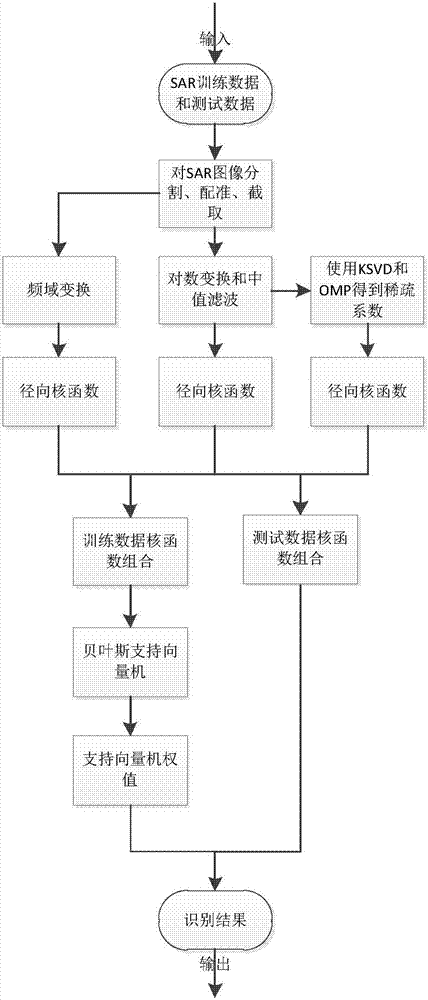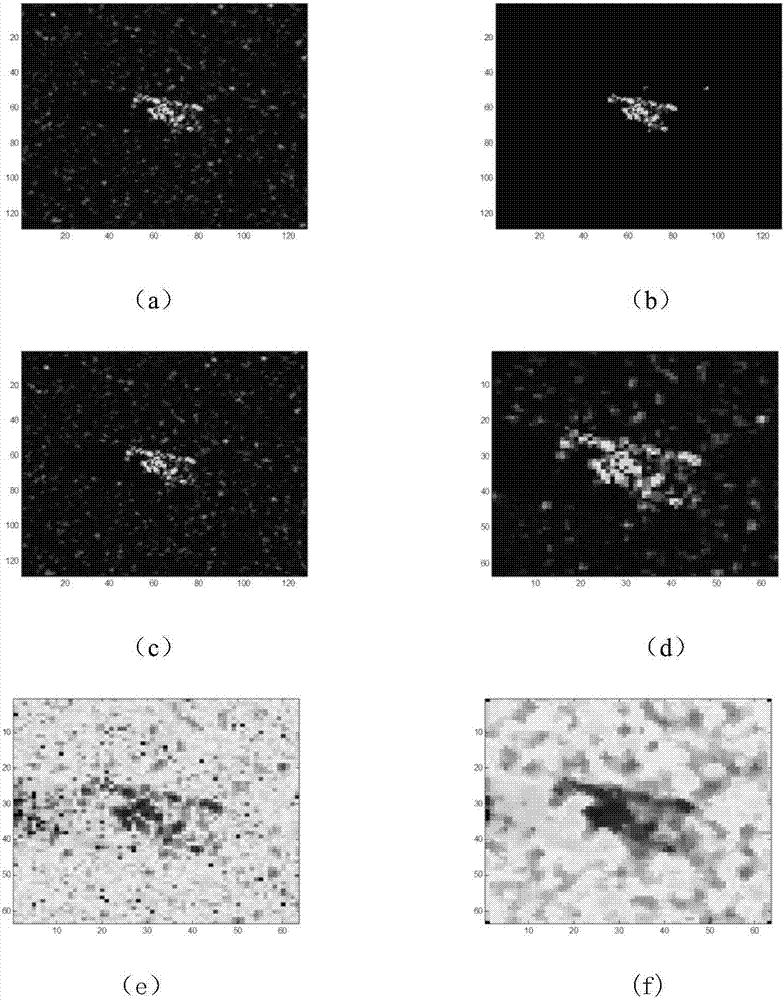SAR target identification method based on Bayes multinuclear learning support vector machine
A support vector machine and target recognition technology, which is applied in the field of radar target recognition, can solve the problems of not reflecting the correlation of data features, affecting the classification performance of classifiers, and the decline of target recognition rate, so as to achieve the effect of improving target recognition performance
- Summary
- Abstract
- Description
- Claims
- Application Information
AI Technical Summary
Problems solved by technology
Method used
Image
Examples
Embodiment Construction
[0036] Implementation steps and effects of the present invention will be further described below in conjunction with the accompanying drawings:
[0037] refer to figure 1 The realization steps of the present invention are as follows.
[0038] Step 1, preprocessing the SAR image and calculating the kernel matrix.
[0039] 1a) Enter a picture such as figure 2 The original SAR image shown in (a): I={i mn |1≤m≤M,1≤n≤N}, where, i mn Represents the amplitude pixel value of the original SAR image, M represents the number of rows of the SAR image, and N represents the number of columns of the SAR image;
[0040] 1b) Use the variable power Ostu segmentation algorithm to perform binary segmentation on the original SAR image I to obtain the segmented SAR image I';
[0041] 1c) Carry out dot product calculation between the segmented SAR image I' and the original SAR image I, and the obtained SAR image after dot multiplication is as follows: figure 2 As shown in (b), and calculate ...
PUM
 Login to View More
Login to View More Abstract
Description
Claims
Application Information
 Login to View More
Login to View More - R&D
- Intellectual Property
- Life Sciences
- Materials
- Tech Scout
- Unparalleled Data Quality
- Higher Quality Content
- 60% Fewer Hallucinations
Browse by: Latest US Patents, China's latest patents, Technical Efficacy Thesaurus, Application Domain, Technology Topic, Popular Technical Reports.
© 2025 PatSnap. All rights reserved.Legal|Privacy policy|Modern Slavery Act Transparency Statement|Sitemap|About US| Contact US: help@patsnap.com



